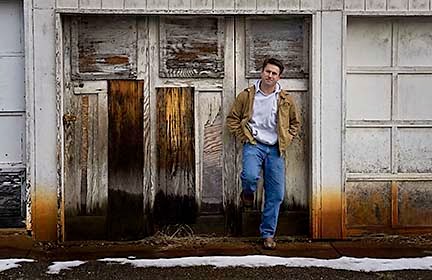 |
| Photo credit: Nancy Wegard |
B.J. Ward, the judge of the 2014 WCPA Frank O’Hara Prize, co-directs the creative writing degree program at Warren County Community College in New Jersey. Read below to learn about his experience as a judge for the Frank O’Hara Prize, tips for writers, and inside information behind two of his poems that appear in volume XXXV of The Worcester Review.
As the co-director of the creative writing degree program at Warren County Community College, what has been the most rewarding part of working with students? In what ways has teaching writing helped you grow as a writer?
My first inclination was to say that teaching has not helped me much as a writer, nor have I expected it to. Writing and teaching require different types of awareness. For me, the energy it takes to write well is an inward type of delving; when I teach, my energy is (hopefully) going outward, attempting to enter the minds of everyone else in the room with my little shovel, trying my best to make my students’ lives better in an hour and twenty minute session. In this way, teaching in a classroom is a public act. As a student, I’ve always been grateful for the teacher who looked at a book as an intellectual meeting place for everyone in the room and made sure everyone felt invited. I felt a little marginalized when a professor would be too inward with his focus, presenting the text as a personal playground we got to observe from the other side of the fence.
Just as momentum can shift in a baseball game with a couple of base runners, momentum can shift in a class session (for better or worse) with just two or three comments. Teaching well involves being aware of the energy in the room, an outward-going attention. Writing, however, feels very private to me—at least the initial flurry of words on the page in which I’m unearthing things I didn’t know I knew.
And yet something else must be acknowledged: there’s cross-pollination between inward and outward energies after the initial act in each instance. Revising my work towards publication usually involves some kind of outward awareness, and consideration of how a lesson plan went and how it can be improved for the next presentation involves that inward energy.
So my first inclination was wrong. If I further consider how teaching has helped my writing: discussing a poem a few times inevitably brings greater insight to it. For me, that usually has to do with the poet’s crafting, which inspires me to work on my own craft more.
And beyond this, teaching gives me a way to continue to think actively about words during my day job—a luxury I didn’t have when I was a waiter or boxing stereos at the Kenwood plant in Mount Olive, NJ.
Furthermore, and to mention one of the most rewarding aspects of my jobs, my students often become friends, and their enthusiasm for their continued learning bolsters my enthusiasm for my own self-education.
What was your experience like as a judge for the Frank O’Hara Prize? What was the most interesting aspect? The most difficult?


